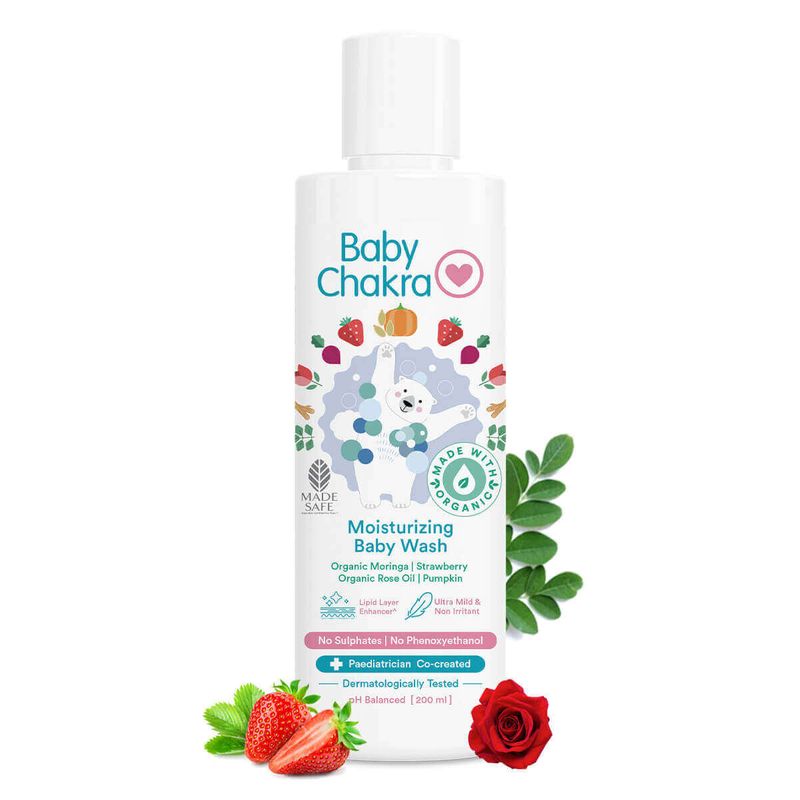
5 Myths And Facts About Baby Eczema
10 Nov 2022 | 3 min Read
Manisha Pradhan
Author | 1053 Articles
Baby eczema is common in babies, especially in the first few months after birth. These itchy, dry and rough patches usually affect the joints of a baby’s arms and legs and can appear on their cheeks as well.
Even though eczema does not look the same on every baby they usually appear crusty and flaky. It may look like patches of red skin in babies who have light skin, while in darker-skinned babies they look greyish, purplish or brownish. Most parents confuse it with cradle cap but baby eczema is itchier and cradle cap usually appears on a baby’s scalp, eyelids, sides of the nose, behind the ears or eyebrows.
Besides the confusion, there are also many myths about baby eczema. Here are some myths and facts about baby eczema that will help you clear your doubts.
Myths And Facts About Baby Eczema
1. Myth: Bathing a baby too often triggers eczema
Fact: The truth is that short daily baths with a natural baby body wash and lukewarm water help to keep away eczema away and also soothe the baby’s skin. to your baby. However, using soaps or baby washes that contain harmful chemicals can worsen eczema so #LabelPadhoMoms before you buy a baby wash. Also, remember to apply natural baby sunscreen and diaper rash cream after the bath.
2. Myth: Drooling does not affect baby eczema.
Fact: If your baby has eczema, the saliva from drooling can irritate the baby’s skin further. Babies often get rashes on their cheeks and chin because of drooling.
3. Myth: The weather does not cause eczema to worsen.
Fact: the fact that our skin gets dry and our lips are chapped during the winter season is proof enough that weather does play a part in aggravating skin conditions like baby eczema. Since the air during winter is dry, it makes the baby’s eczema worse. It is advisable to keep a baby’s skin moisturised with natural coconut oil or natural baby moisturisers.
4. Myth: What you eat while breastfeeding does not affect baby eczema.
Fact: While eczema in babies is not related to either formula milk or breast milk, as per studies, eczema improved in breastfed babies when mothers avoided food like eggs and dairy products while breastfeeding.
5. Myth: Babies With Eczema Will Have It For Life
Fact: By the time some toddlers are around two years old they outgrow eczema. Even though there is no known cure for eczema and most babies are prone to it, there is no truth in the myth that babies with eczema will suffer from it all their life.
What Are Some Of The Things That Can Worsen Eczema In Babies?
If your baby has eczema here are some of the triggers you need to watch out for:
- Stress
- Dry skin
- Allergens
- Perfumes
- Synthetic clothes
- Heat and sweat
Things To Keep In Mind For Eczema In Babies
- Dress the baby in loose clothes made of natural materials or pure cotton.
- Wash their clothes with a mild detergent before they wear them
- #LabelPadhoMoms and make sure the products are hypoallergenic, unscented and fragrance-free.
- Avoid soaps and baby other baby products that contain perfumes, chemicals and toxins.
Cover image source: freepik
A


Related Topics for you
Suggestions offered by doctors on BabyChakra are of advisory nature i.e., for educational and informational purposes only. Content posted on, created for, or compiled by BabyChakra is not intended or designed to replace your doctor's independent judgment about any symptom, condition, or the appropriateness or risks of a procedure or treatment for a given person.

